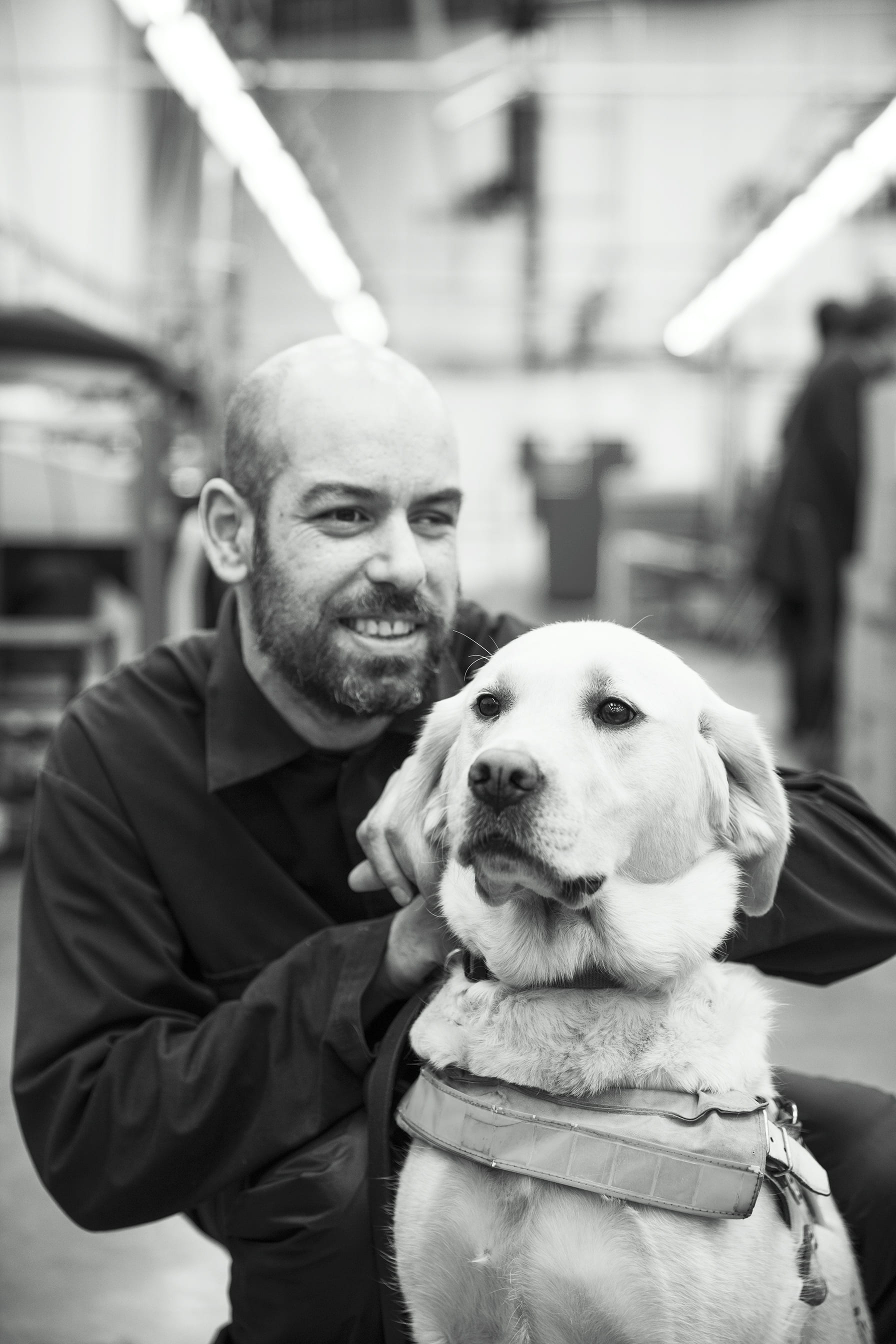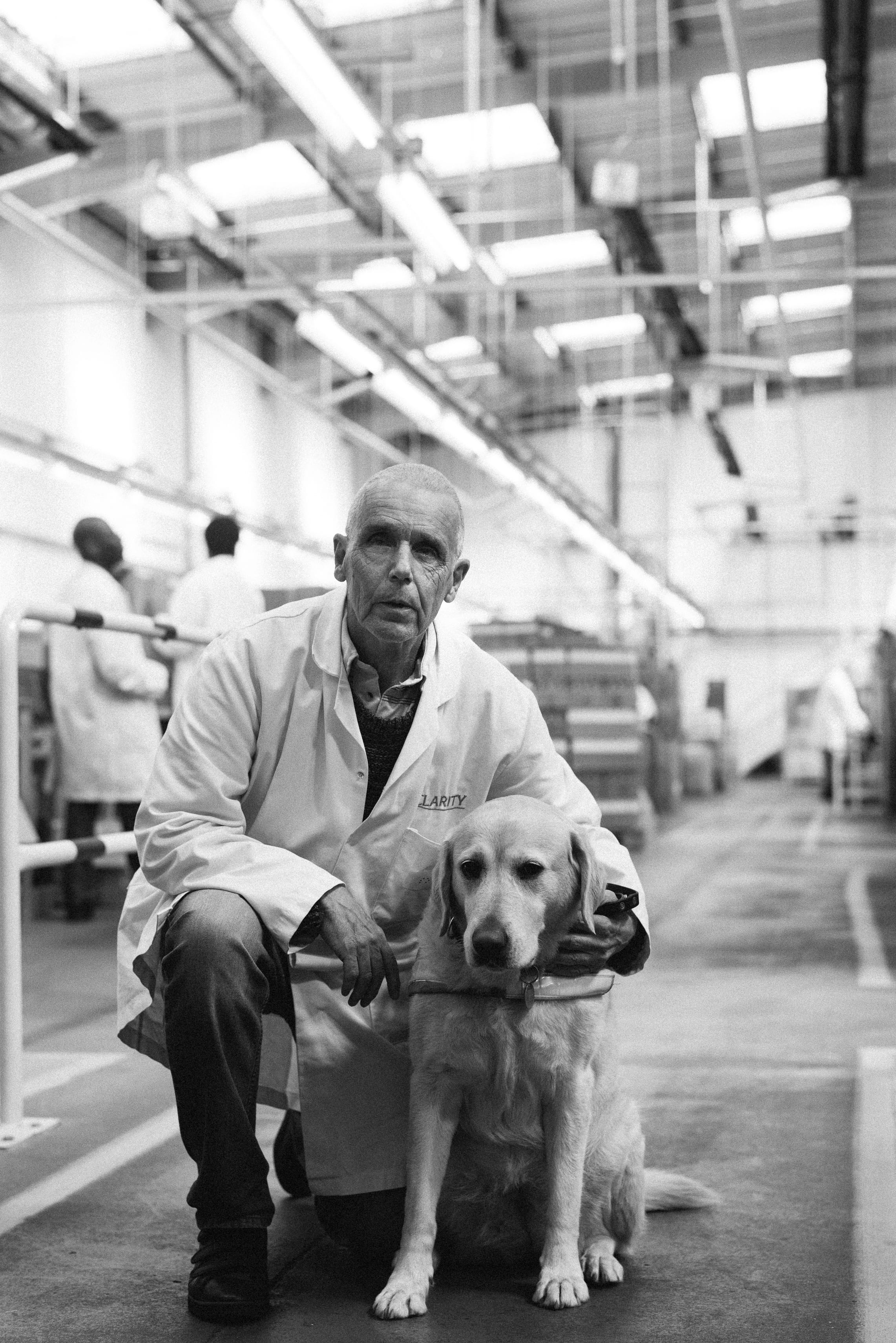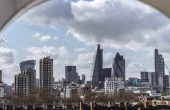As I arrive at The Soap Co., I am greeted warmly by receptionist Kevin Lyon, who politely asks me about my journey to get to their factory in Higham’s Park. I hadn’t come far, but complain that despite this I had to change trains twice and managed to miss one of my connections.
Kevin then tells me how he travels to work through rush hour from East Finchley, changing trains at Euston in a journey that takes over an hour and a quarter.
The difference with Kevin, is that he does this journey with Wanda – his guide dog. And he is not alone, another colleague Ricky travels with guide dog Jasmine, from Putney to Higham’s Park (a journey which involves travelling across the breadth of London) for an 8am start.
Kevin and Ricky’s stories, not only embarrass me for complaining about a missed train, but also immediately challenge my perception of disability. I am surprised at their ability to complete such journeys – which would be considered stressful even for the non-impaired traveller.
But why do I assume they would not be able to do this? A lot of employers are reluctant to take on disabled or visually impaired people, because they think they are unable to do tasks; because of their own preconception.
I am sure I am not alone in thinking it would be difficult for a blind person to travel through rush hour across London every day. But immediately from my arrival at The Soap Co., I realise I need to leave my preconceptions behind and that it is disabled people themselves who should have the right to define what is and is not possible.
This is quickly reinforced by a quote I spotted whilst in the factory:
“Everyone is born equally capable, but lacks equal opportunity.” – Pierre Omidyar
And it is this lack of opportunity that The Soap Co. founder Camilla Marcus-Dew discovered whilst working as a Management Consultant with the likes of Disney and Vodaphone. Whilst working with these big corporate companies, she realised there was an employability problem with disabled people and wanted to try to change this.
Camilla joined On Purpose, a programme that helps people transition from the corporate world to social enterprise. As part of this, she took a six-month placement with CLARITY, a 160 years old social enterprise for the blind. At the time Camilla joined them, CLARITY were already employing visually impaired people to create soaps and bath products, but these were marketed towards older generations and the connection between the product and the people who made them wasn’t so clear.
Camilla realised the possibility to tell the story of the social enterprise through a new luxury product, aimed towards a younger market; a market concerned with how the products they use are made, what they are made from and their aesthetic.
Out of this realisation came The Soap Co., an ethical luxury soap brand who work with visually impaired or otherwise disabled or disadvantaged to create eco-friendly, sustainably designed soaps that “look good, feel good and do good”.
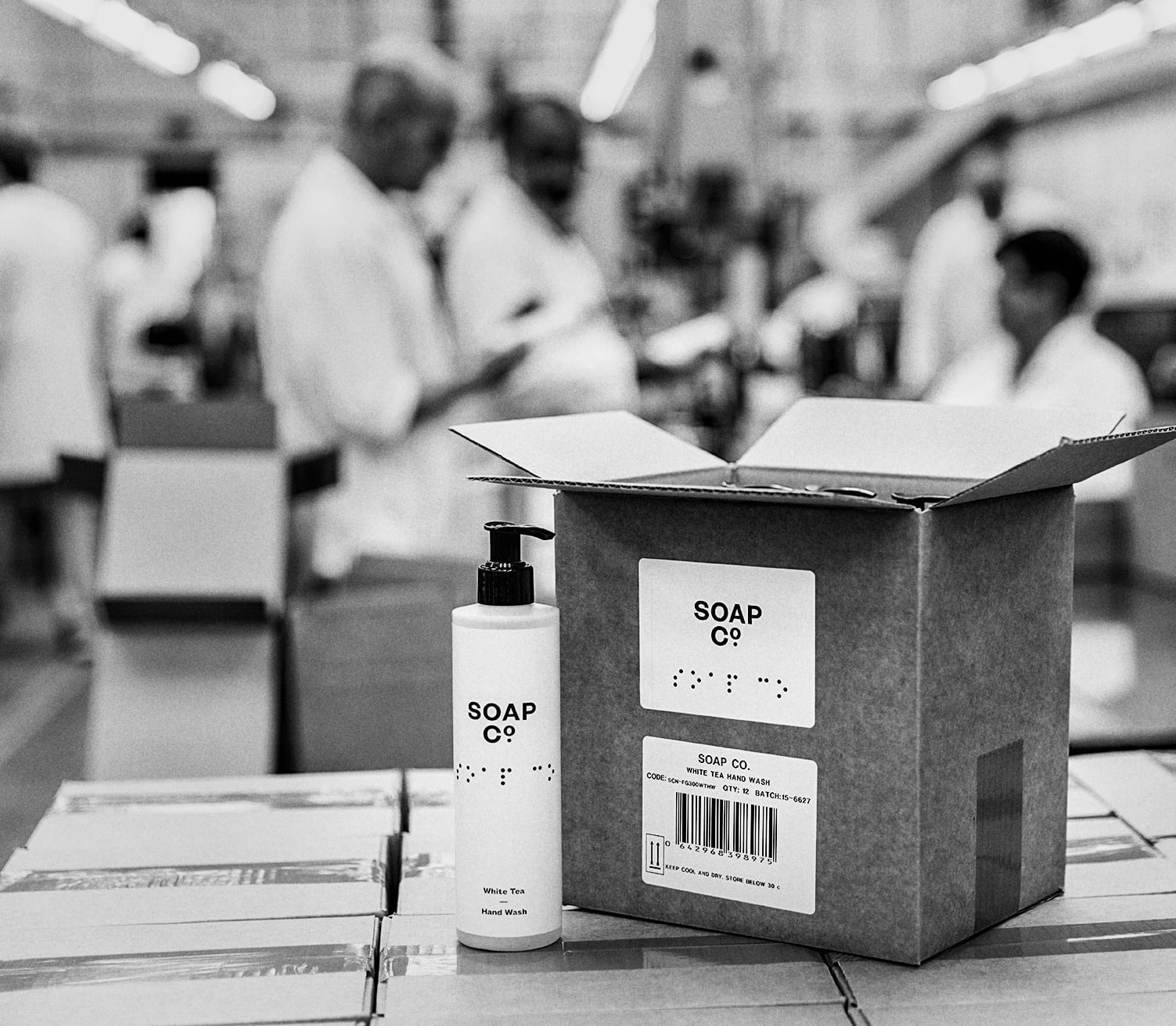
What initially sets The Soap Co. is the way it is branded. Often when a product has a strong environmental or social impetus, it relies on this for its marketing and the branding or aesthetic can be overlooked.
However, when I first spotted The Soap Co. in the lovely Luna & Curious in Shoreditch, the minimalist, monochrome packaging design looked modern and clean, reminiscent of the Scandinavian aesthetic so admired by younger consumers. However, it was the company’s name, repeated in a tactile braille graphic, which really captured my curiosity.
The braille is a subtle and understated way to connect people to their mission, to provide employment opportunities to people with visual impairment and other disabilities.
Although the social mission is at the core of what The Soap Co. do, Camilla is keen to stress that they don’t use this mission as an excuse; as she explains, “the product still needs to be market leading.”
And it is. Their story is backed up, not only by award winning branding, but also by the use of the highest quality ingredients.
All their products are made in the UK with natural extracts, added vitamins and are colour and paraben free. Their latest range is made with bee friendly botanicals and is also eco-certified and SLS free, something that is unprecedented in the skincare industry.
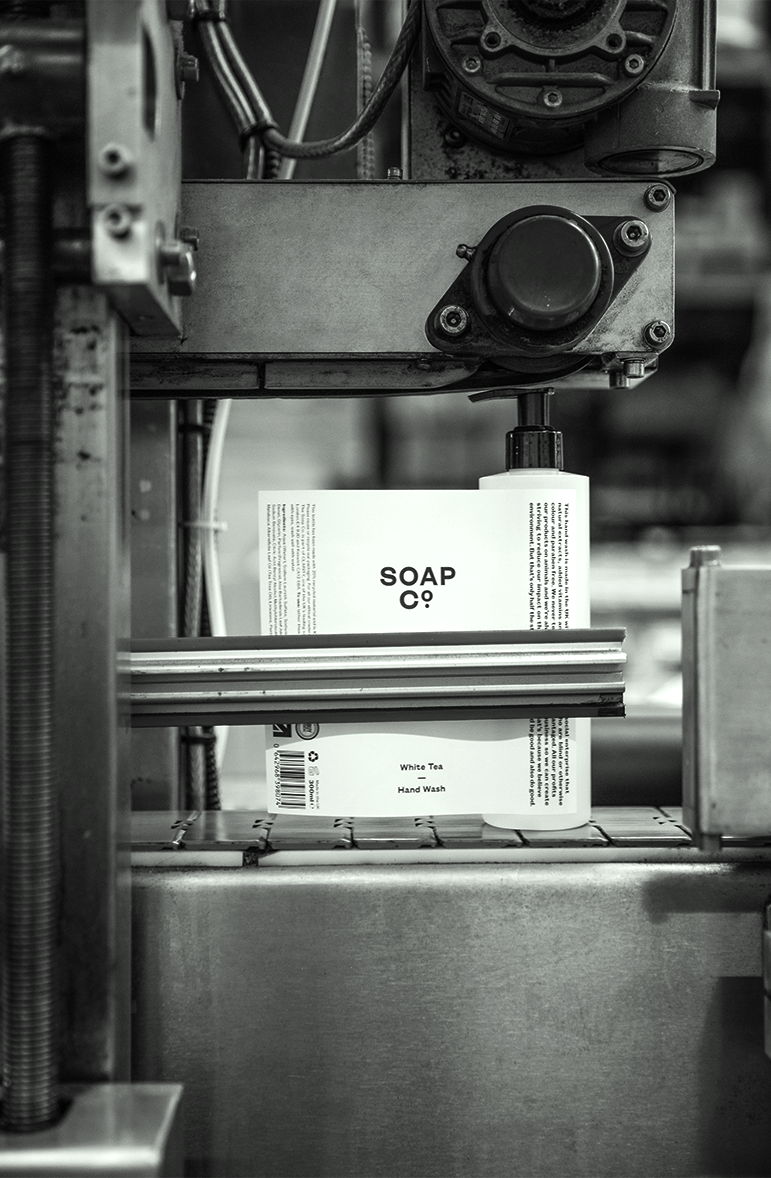
And that’s just the inside. What impresses even more is what the products are packaged in. The soap bottles are made in the UK from recycled milk bottles, which they encourage customers to buy refills for. The film that protects the soap bars looks like plastic, but Camilla reveals is actually made from renewable wood pulp. Their soap wraps are made of 100% recycled paper and are recyclable. They also use non-toxic glue to stick their biodegradable labels and encourage customers to compost these.
Camilla is inspired by Dame Ellen Macarthur’s Foundation and their work to create the Circular Economy 100, which seeks to go beyond the “take, make and dispose” model and design waste out of products, while minimising negative impacts. And it’s clear that The Soap Co. products have been designed with reuse and recycling in mind.
With such a strong social impetus, it would be easy to pay less attention to the environmental impact of their products, but you get the sense that The Soap Co. ethos to “do good” extends to all aspects of their business.
The products are all formulated in-house and are made in either their semi-automated production line in London, or Keswick workshop, where they hand make all the soap bars using a traditional cold process method.
The Soap Co. currently employs more than 100 people across the two locations, 80% of whom are blind, or otherwise disabled or disadvantaged.
Through the sale of their products they create over 10,000 days of employment and aim to generate over 60 new jobs per year.
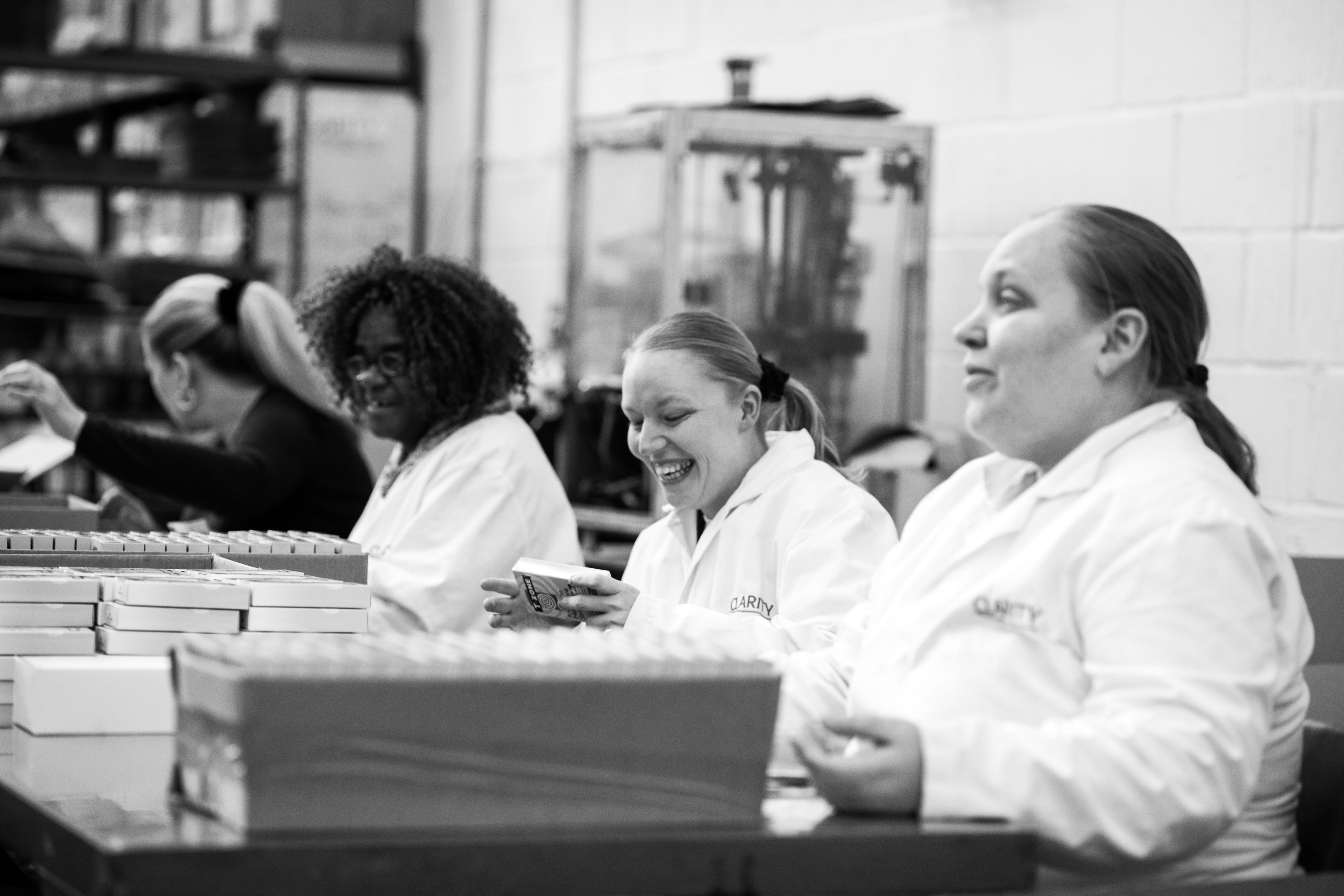
Enterprises like The Soap Co. are challenging the way we perceive charitable giving. Instead of depending on donations, often random and unreliable, The Soap Co. are making high quality products that are desirable in their own right, which can then create and sustain jobs. This model not only seems more sustainable, but it also provides the employees with self-esteem and a sense of achievement.
More employers should visit The Soap Co. because whilst there they will realise, as I did, that with training and patience, disabled or blind people can be valuable employees.
As Stephen states: “An employer must see a disabled person as an asset rather than a hindrance. A blind person or someone with a disability often can provide loyalty to their employer and very good time keeping, because they realise how valuable the job is.”
But it’s not just blind people The Soap Co. supports. Because of the braille packaging, it’s easy to conclude that the enterprise are solely about visual impairment, but this isn’t exactly true.
About 40% of their staff have a visual impairment, but they employ people with a whole range of disabilities and aliments, from epilepsy to anxiety disorders.
And it’s this variety of disabilities that makes The Soap Co. so successful. Each member of staff has their own particular strengths and weaknesses, and because of this they are all able to support each other.
Despite so much thought being put into the quality and design of the soaps, I get the sense that The Soap Co. is about so much more than soap; it’s about creating a place for people to come together and socialise. There is a real sense of community in the factory. As Ricky explains “I don’t really see it as the money, it’s more like a family.”
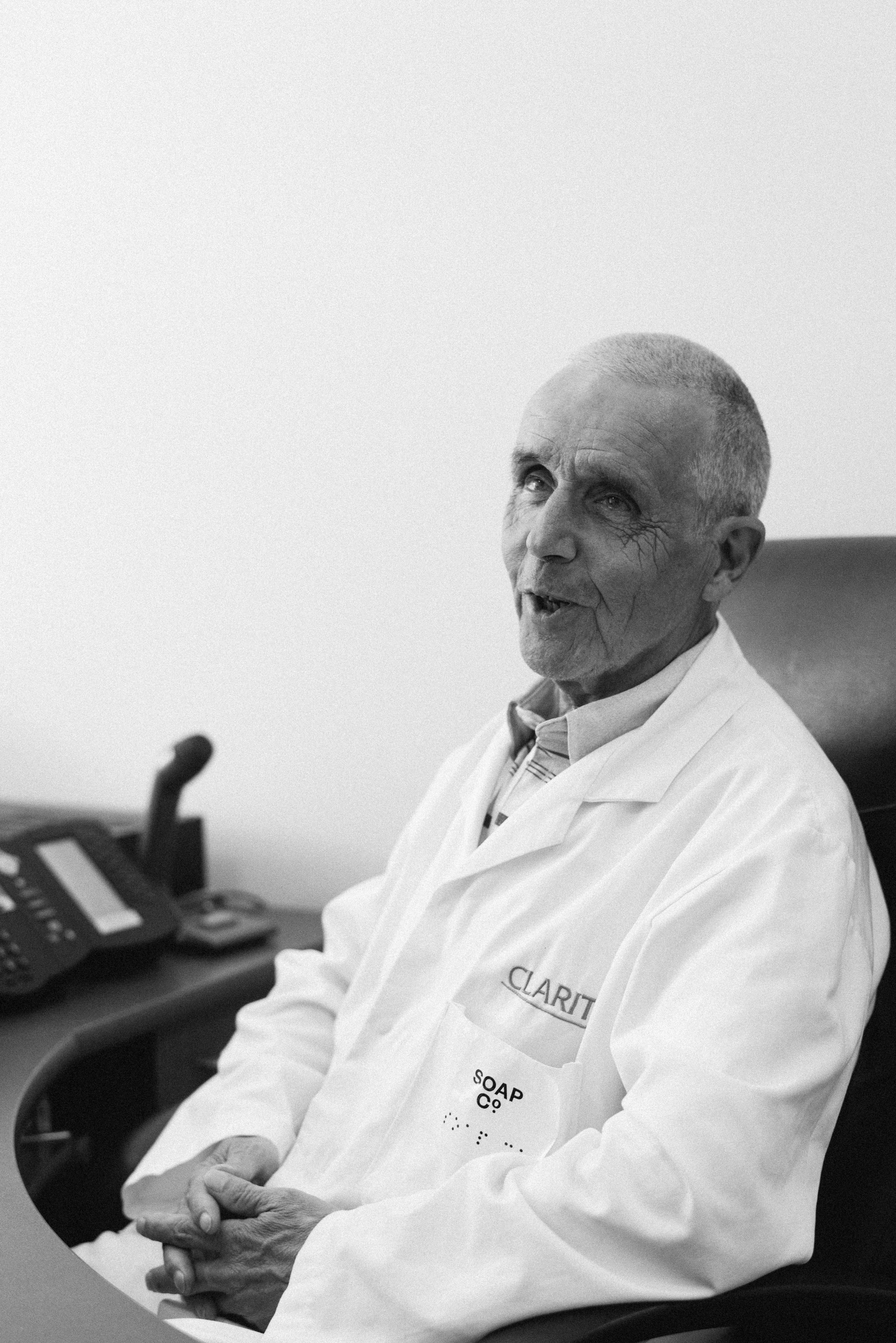
The Soap Co. does good for its employees, the environment, and wider society. This should be what business looks like in the 21st century – something which benefits all.
We often associate social enterprises as being an especially fair or better way to do business, but this should be the way all businesses are run.
Until now consumerism has been used to drive our economy forward. Companies have been using the model of ever cheaper and novel goods that will attract the consumer to keep sales and growth going, throwing ethics and the environmental responsibility aside. Nowhere is this more apparent than in the fast fashion industry.
Long term unemployment, marginalized communities, loss of social mobility and a growing sense of disillusionment and longing for a bygone age – when jobs were plentiful and people had a sense of belonging and self-worth – is now endemic in many countries.
This economic model will not grow forever – as our stagnant economies seem to prove – so what next? The fashion industry needs to create business models that meet consumers’ needs without exploitation. For me, The Soap Co. who produce a luxury product whilst maintaining clear ethical and environmental commitments, point to the future of how businesses should behave going forward.
But it’s not just our economies and industries that need to evolve, we must all take responsibility for creating the solutions that will help rebuild our communities, replace skills and create a greater sense of social inclusion.
As individuals, each of us has the power to decide how and where we spend our money. When you give money to a business, you’re validating their practices and encouraging them to continue, whether those practices are harmful or beneficial. Every purchase we make is a political act.
Every time you buy a Soap Co. product, you create opportunities for people who are visually impaired, have disabilities or are otherwise disadvantaged.
When you consider that only around 20% of blind people are in paid employment, you realise the significance of The Soap Co. and other social enterprises like them, to our society.
This Christmas, I urge you to consider what type of society and what kind of business you are supporting through your purchases. And if you find it’s one that is socially inclusive, environmentally responsible and locally focused, The Soap Co. could be just what you’re looking for.

